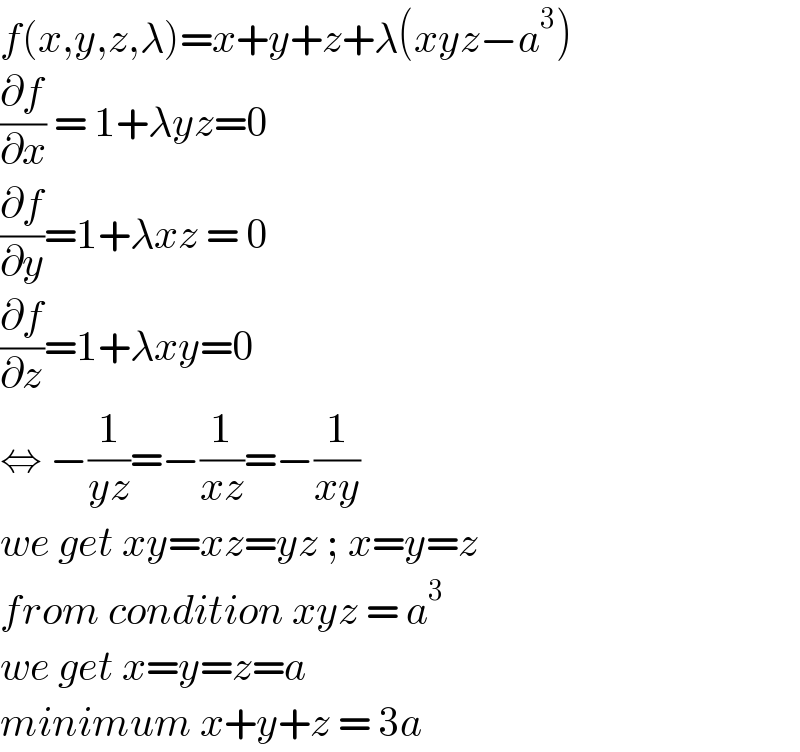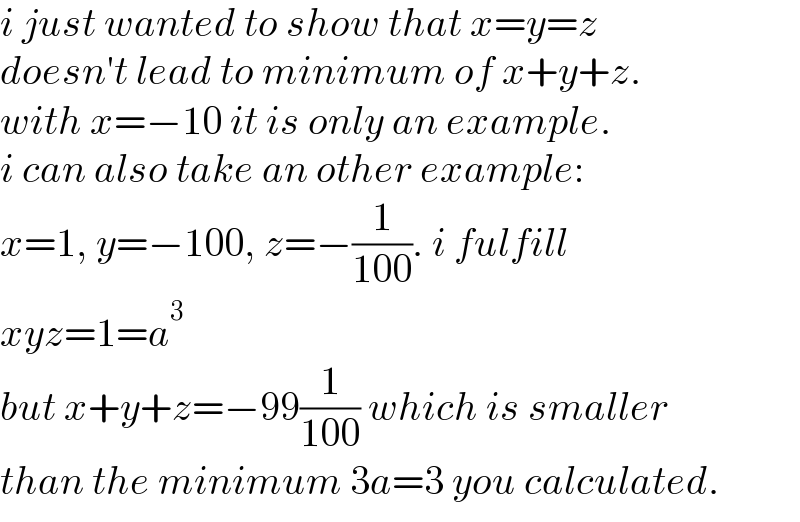
Question and Answers Forum
Question Number 138004 by benjo_mathlover last updated on 09/Apr/21

Answered by EDWIN88 last updated on 09/Apr/21

Answered by bobhans last updated on 09/Apr/21

Commented bymr W last updated on 09/Apr/21

Commented bymr W last updated on 09/Apr/21

Commented bymr W last updated on 09/Apr/21

Commented bybobhans last updated on 09/Apr/21

